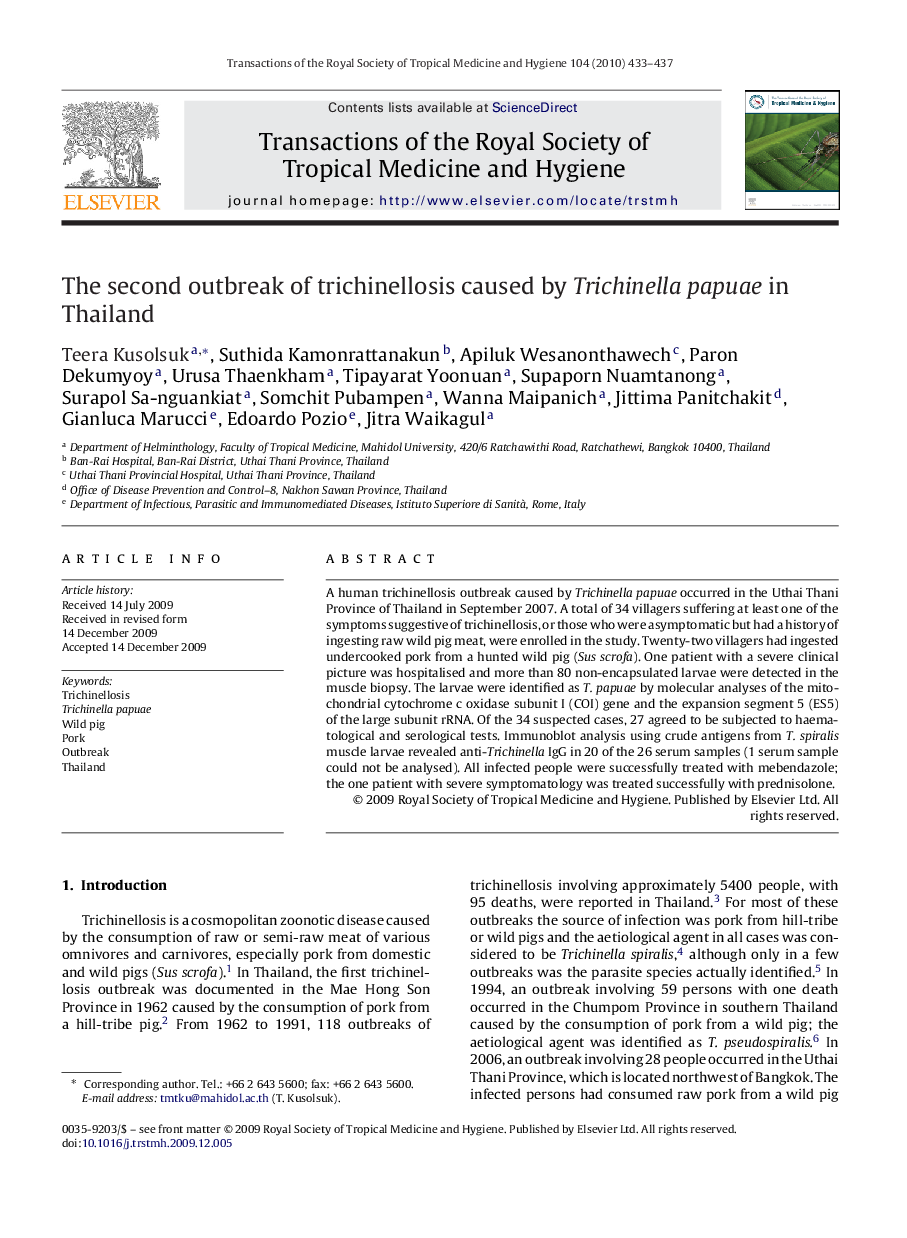| Article ID | Journal | Published Year | Pages | File Type |
|---|---|---|---|---|
| 3420879 | Transactions of the Royal Society of Tropical Medicine and Hygiene | 2010 | 5 Pages |
A human trichinellosis outbreak caused by Trichinella papuae occurred in the Uthai Thani Province of Thailand in September 2007. A total of 34 villagers suffering at least one of the symptoms suggestive of trichinellosis, or those who were asymptomatic but had a history of ingesting raw wild pig meat, were enrolled in the study. Twenty-two villagers had ingested undercooked pork from a hunted wild pig (Sus scrofa). One patient with a severe clinical picture was hospitalised and more than 80 non-encapsulated larvae were detected in the muscle biopsy. The larvae were identified as T. papuae by molecular analyses of the mitochondrial cytochrome c oxidase subunit I (COI) gene and the expansion segment 5 (ES5) of the large subunit rRNA. Of the 34 suspected cases, 27 agreed to be subjected to haematological and serological tests. Immunoblot analysis using crude antigens from T. spiralis muscle larvae revealed anti-Trichinella IgG in 20 of the 26 serum samples (1 serum sample could not be analysed). All infected people were successfully treated with mebendazole; the one patient with severe symptomatology was treated successfully with prednisolone.
